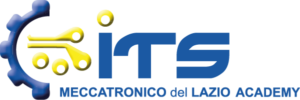- Massimo, we know that in the ITS Mechatronics of Lazio Academy you have many opportunities to make work-based learning “digital”. Could you tell us an example and tell us what these digital methodologies entail in the organization of the tutor’s work? What are the main results of this type of training?
The ITS Mechatronics Academy of Lazio is an example of a dual system in Italy and uses digital technologies to support experiential learning. One of the fields in which we successfully apply digital for WBL is welding.
The welding simulation programme allows the student to be in a virtual reality environment, where every movement is instantly reproduced and represented to himself and the teacher on a 3D visor and external control screen.
The virtual environment faithfully reproduces the conditions under which the welder will work in the real world, simulating the joint, the electrode, the welding position and any other parameter or condition significant to the training and evaluation of welding skills.
The Virtual Welding curriculum is accompanied by a series of theoretical questions that serve to complete the students’ training and introduce them to the fundamental concepts of manual or semi-automatic electric arc welding.
This technique has been very useful for:
- Shorten the duration of standard training courses;
- Improve the learning process by also introducing notions of theory (including standards and safety);
- Select beginner or declared expert candidates to start a career as a welder;
- Evaluate welders in advance before sending them for official certification;
- Pre-training of welders on virtual simulacra of production parts (self-presence).

